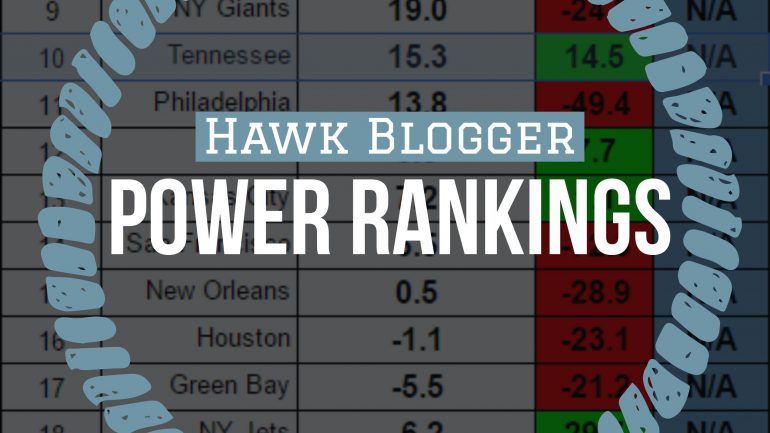POWER RANKINGS
Week one power rankings are notoriously flaky. I used to avoid even posting them at all because so many factors make what happens in week one misleading. Still, there is not much harm in at least seeing where our collective NFL story begins.
Any team that plays Miami this year should have a big spike in their ranking. Teams like New England get to play them twice. Oh, the glory of being in the AFC East. Imagine playing three of the worst 10 teams in the NFL every year twice every single season. Other AFC contenders should start sending the Bills, Jets and Dolphins good players just to give the Patriots some legitimate competition.
Tennessee, on the other hand, had one of the more impressive victories of week one. The Browns may not be as good as everyone expected, but they are a tough squad and beating them badly on the road is deserving of respect.
Seeing Green Bay this high on the strength of their defense is of note. The 49ers are tops for NFC West teams, and have a defense that will keep them in many games.
The Seahawks are down there in negative territory completely due to their strength of schedule ranking being so low. SOS does think highly of the Bengals, but SOS has had no time to really know the Bengals this season. If you remove SOS from the formula, the Seahawks rise to 7th, behind Dallas and ahead of Green Bay.
They play the Steelers this week who were helped by SOS. Take SOS away, and the Steelers would be the 31st ranked team on the list. We all know the difference between the Steeler offense on the road and at home. Just another reason these week one rankings are to be taken with a grain of salt.

Rankings Visualization
This view shows tiers of strength that develop over the course of the season.

RANKINGS EXPLAINED
Power rankings are always debatable. I don’t buy into the gut feel methods most places use to determine their rankings, so I developed a formula a few years back that attempts to take at least some of the subjectivity out of the discussion. My approach was simple, I measured offensive and defensive efficiency based on the Yards Per Carry (YPC) and Yards Per Attempt (YPA), as well as points scored and points allowed. The formula to calculate “Team Strength” was as follows:
(YPC (offense) + YPA (offense) + Avg Pts/Game Scored) – (YPC (defense) + YPA (defense)+ Avg Pts/Game Allowed)
The formula has proven to be a pretty accurate predictor of success (roughly 70% of the teams ranked in the Top 10 by week 3 make the playoffs), but I am always looking for ways to improve it. I read a great article on ColdHardFootballFacts.com. There was one gem in there about predicting championship teams. The article mentioned passer rating differential as the “mother of all stats.” A full 69 of 72 champions have ranked in the Top 10 in this statistic. It is a stat after my own heart, as I believe offensive and defensive efficiency is the key measurable outside of point differential. Turnovers would factor in there as well, but I am not convinced a team has as much control over that. My power rankings use YPA and YPC differentials. I went ahead and replaced the YPA with offensive and defensive passer rating, to give me this:
(YPC (offense) + Passer Rating (offense) + Avg Pts/Game Scored) – (OPP YPC (defense) + OPP Passer Rating (defense)+ OPP Avg Pts/Game) As of September 23, 2014, I have added a strength of schedule component to the rankings as well. As of November 22, 2016, I have increased the weighting of the run game and point differential. Yards per carry will be multiplied by 10 to make it more evenly weighted with the passer rating. It is still roughly half as important, but will have a greater impact. Point differential will be multiplied by two as it still should be among the most important aspects of measuring teams.
